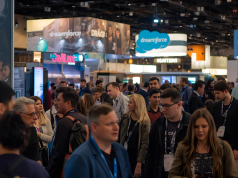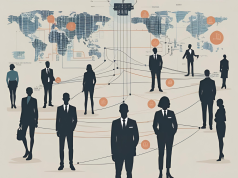[ad_1]
How does the office fit into the new ecosystem of work? How can we build sustainable office spaces that meet new expectations? What is the wider implication of hybrid working on our cities?
Join our session at the Workplace Trends Research Summit on 19 April 2023, where Kasia Maynard of the Gensler Research Institute reports on recent research and the ripple effect of hybrid working.
The latest research from the Gensler Research Institute explores how to best enable hybrid working, optimise the office environment, meet goals of NET zero, whilst also maximising employee experience and engagement. The research highlights innovative case studies for sustainable design, alongside cutting-edge data on 30 cities across the world, and new survey results from UK workplaces. As hybrid working develops in maturity, there is a greater opportunity to design workspaces that are sustainable, customisable, and effective.
The acceleration of hybrid working since the global pandemic has prompted a paradigm shift in the way we work. Professional workers have more autonomy and flexibility to choose where and how they conduct their work. As a result, a new scenario for work is emerging in the aftermath of the global pandemic that will change the way office buildings are used in the future.
Gensler has studied the UK workplace since 2005. We have mapped the trajectory of how employees work, the relationship they have with their office, and the effectiveness of space. Since the pandemic, we have seen a sudden shift. While the office remains a critical component, it is now part of a wider network of channels in which employees can access work. This has prompted a wide-scale re-evaluation of the role of the office to compete as a desirable place to work.
For the first time, the office has been challenged to rethink its approach to curating experiences amid a new context where employees expect more from their workplace. As hybrid working patterns become more established, employees will seek to customise their work experiences. They will choose workspaces based on their ability to facilitate the type of work they need to do.
Therefore, the office needs to be prepared for all eventualities. There is increasing pressure to create offices that cater for every need of the modern worker, whilst also being conscious about space and energy efficiency. Gensler’s research demonstrates practical case studies and applied research to indicate where the future workplace is heading based on more than 15 years of longitudinal data.
The shift to more flexible working has revealed a potential to make more sustainable decisions about the office. As an industry, we are witnessing universal momentum around addressing the urgent issue of climate change. This year will be marked by the passing of new legislation with the aim of reducing carbon emissions. This is reflected in the new position of the British Council for Office (BCO) to reduce office occupancy density and eliminate Cat A office fit outs. The momentum is propelled by new expectations of work and the office which has prompted more conscious decisions around how we use office space. The presentation will showcase case studies of Gensler’s pioneering climate action solutions that use creative, innovative design approaches in offices around the world.
This presentation will draw on data from Gensler’s latest research data including Climate Action – a catalogue of innovative sustainable case studies; City Pulse – a survey of urban residents in 30 cities around the world; and the UK 2023 Workplace Survey of 2,000 UK office workers. The research knits together the wider implications flexible working has on our workplaces, cities, and the world.
Find out all the details, the outcomes, recommendations from this research and the related case studies at the Workplace Trends Research Summit on 19 April 2023 in London and online.
Kasia Maynard, Gensler Research Institute
Kasia Maynard is a researcher and writer with a background in the future of work and urban design. She holds an MA in Urban Design and Planning and has more than six years’ experience forecasting trends on the future of work. Kasia works across the global workplace surveys published by the Gensler Research Institute. Prior to this, she worked as an editor with the WORKTECH Academy – a global platform focusing exclusively on the future of work and workplace. She has presented research and insights on the future of work internationally, delivered workshops, and facilitated panels with prominent thought leaders across the industry.
[ad_2]
Source link



























